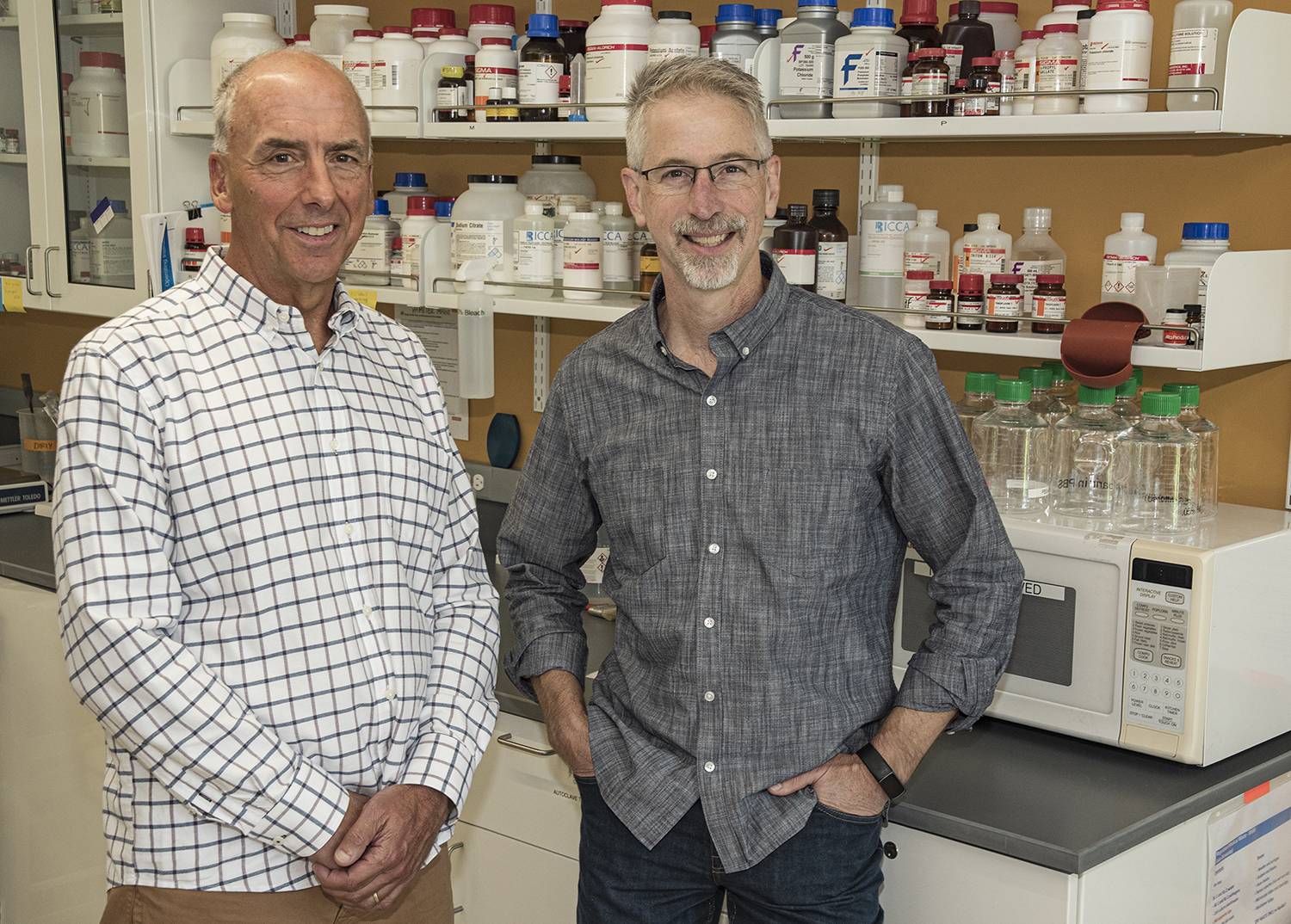Professors William Van Nostrand and John Robinson named new co-executive directors of George and Anne Ryan Institute for Neuroscience. PHOTO CREDIT: uri.edu
The University of Rhode Island’s George and Anne Ryan Institute for Neuroscience has just named its new co-executive directors.
William Van Nostrand is a professor of biomedical and pharmaceutical sciences who has researched Alzheimer’s disease and related disorders for over 30 years. John Robinson is a professor of psychology and biomedical and pharmaceutical science and a behavioral neuroscientist who researches human central nervous system function and dysfunction through the use of rodents as models. These two were named co-executive directors in October. They have been running the institute as temporary co-directors since 2020 before their positions became permanent.
Before coming to URI in 2017, Van Nostrand and Robinson were research collaborators who came to the University from Stony Brook University.
“We always like to say that we build on what was a successful research collaboration,” Robinson said. “And also that we have complementary, but not exactly the same, skill sets and we’ve just sort of transferred them into being the co-directors of a research institute.”
Robinson said there hasn’t been much of a change in their priorities or workload as permanent co-executive directors other than being able to think further into the future of the institute.
“We can start being much more strategic and start thinking two, three years down the line, build a plan where there’s more development of things,” Robinson said. “That will pay off in the long term.”
The pair started their positions as before the pandemic, so they said they were grateful that URI didn’t shut down research operations many institutions did with their operations.
“We were not firing on all cylinders, but the fact that we were firing at all was a good thing,” Van Nostrand said. “We were able to keep some momentum going forward here, which was good for us and certainly for the institute moving forward.”
Although neither thought the position would become permanent, Robinson said that their history would be beneficial to their now long-term roles.
“There’s a lot of advantages as co-directors,” Robinson said. “This is a rare leadership model it’s often not a productive one, but for us, since we’re building on an already existing relationship, we kind of knew what we both were good at, we knew what we could tolerate. We also joke that, unlike single directors, we can always be in two places at the exact same time.”
Van Nostrand said that having two directors is especially useful in their field with balancing directing the institute, researching and teaching.
“It does enable us to continue doing our own research and other things,” Van Nostrand said, “where if it was just one of us being the sole director, it would be very difficult to do that. And I think that’s a very important component of it as a research institute.”
Going forward, Robinson said they hope to expand and grow the institute.
“Those are the major things, growth of the institute, of existing faculty here, adding new faculty members, expanding the base of resources that we have here in order to grow and have this institute become, basically, a shining star here in southern Rhode Island,” Robinson said.





